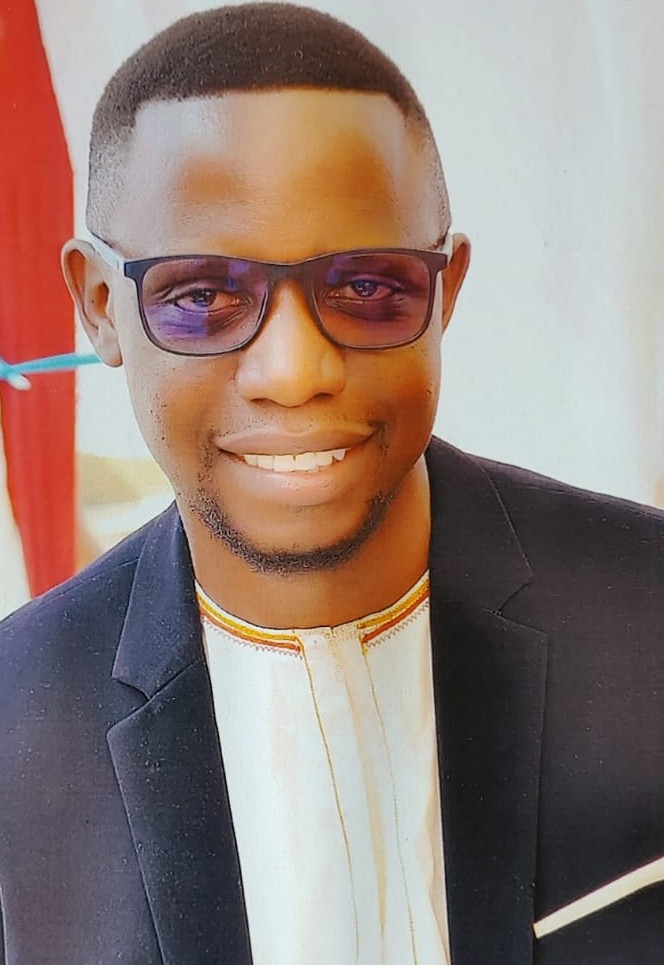ACBS Diversity Award
ACBS Diversity AwardThe ACBS Awards Committee invites nominations and applications to this annual award focused on diversity, equity, and inclusion. This Diversity Award will be given to one qualifying ACBS member each year who disseminates CBS work aimed at advancing diversity, equity, and inclusion. Specifically, the award focuses on dissemination of work across categories including gender, race, ethnicity, language, income, sexual/gender identity, religion, neurodiversity, and disability. This work can be disseminated through research publications, teaching, clinical work, and/or community service.
Requirements:
1. Candidates must be a member of ACBS.
2. Candidates should provide the name of an individual who would be willing to complete a brief reference form, such as a collaborator, co-author, or member of the community in which the work is disseminated. (Individuals who nominate another person must complete the reference.)
Nominations/applications will be accepted annually between 15 August and 30 September, with the awardee determined by the ACBS Awards Committee with the assistance of the Diversity Equity and Inclusion Committee. Award recipients will receive a certificate and the option of either:
One free ACBS World Conference registration for one of the two next World Conferences
Or
One free ACBS World Conference registration for one of the two next World Conferences, donated in your name, to a DEI scholarship applicant selected by the ACBS Diversity, Equity, and Inclusion Committee.
Consider nominating yourself or someone else! Self-nominations and nominations of others are encouraged.
Award Recipients:
2025 Awardee - Hary Antonio Winther Rojas
2024 Awardee - Alejandra Goldschmidt
2023 Awardee - Khamisi Musanje
2021 Diversity Award
2021 Diversity AwardSelected for the 2021 Diversity Award is Yiyi Wang, University of Toronto (she was nominated by Jonathan Tarbox)
I am a multilingual international PhD student and I am passionately pursuing my program of research, which has combined applied behavior analysis (ABA) and Acceptance and Commitment Training (ACT), inside a contextual behavioral framework, for expanding behavioral science into more diverse populations that have traditionally been under-addressed by contextual behavioral science research. Children with autism from multicultural backgrounds are often diagnosed at a later age compared to white and English-speaking children. As a result, parents with diverse cultural backgrounds face more challenges given the lack of behavior therapists who understand or speak their native languages in the United States. Despite substantial research validating ABA approaches to supporting individuals with autism, little attention is paid to the role of cultural diversity and multilingualism in treatment. To address this gap in the field of ABA, I led the team that published the article “Multilingual Diversity in the Field of Applied Behavior Analysis and Autism: A Brief Review and Discussion of Future Directions” in the journal, Behavior Analysis in Practice. In this article, we discussed the ways in which cultural diversity, equity, and multilingualism might be better addressed within the field of ABA. Instead of recommending families receive service in English only (as is still common), we recommended that clinicians ask families about their values and cultural preferences. We recommended that a child’s treatment plan be based on culturally appropriate goals, positive reinforcers, first language, and otherwise be customized to the family’s culture. Additionally, we proposed future directions to promote diversity in ABA, including recruiting more international students in graduate programs, enhancing diversity curricula, and initiatives by professional associations. The paper was presented and won the poster competition at the California Association for Behavior Analysis Annual Convention.
In addition to autism, I continue to pursue the importance of diversity and equity in other populations and domains. Under the supervision of Dr. Jonathan Tarbox, I completed my master’s thesis, “The Effects of Multilingual Acceptance and Commitment Training (ACT) on Exercise in Bilingual University Students.” I used a multiple baseline to evaluate the effects of a multilingual ACT program for bilingual international college students who valued increasing their physical activity. The study demonstrated that ACT was effective when delivered in a combination of both English and Chinese in helping all participants to substantially increase their daily steps taken, frequency of gym visits, and work out duration. No previous research, of which we are aware, evaluated bilingual ACT for increasing physical activity in a culturally diverse population. This paper has been presented at several conferences and was published in the Journal of Contextual Behavioral Science in August 2020.
In sum, using contextual behavioral science to promote diversity and equity in behavioral research is my passion and I believe this award will help me share my successful programs of research with more individuals on how to combine applied behavior analysis and ACT, inside a contextual behavioral framework, for more fully addressing topics of diversity, equity, and inclusion.
2022 Diversity Award
2022 Diversity AwardSelected for the 2022 Diversity Award is Brian Middleton, Bearded Behaviorist (he was nominated by Summer Mingo & Clinton Fuller)
In the last year I have been working to further awareness of and inclusion of neurodivergent populations in human services, most specifically ABA. I have been fighting for disability rights, for trauma-informed and neurodivergent affirming practices, and disseminating ACT.
Brian has generously donated his free conference registration to a DEI scholarship applicant to be selected by the ACBS Diversity, Equity, and Inclusion Committee.
2023 Diversity Award
2023 Diversity AwardSelected for the 2023 Diversity Award is Khamisi Musanje (he was nominated by Rosco Kasujja)
While ACT and other related mindfulness and acceptance based therapies have enjoyed a great breakthrough in the developed world, the developing world has lagged behind on this experience. An automatic copy and paste approach would quicken the spread of such therapies in the developing contexts (where they are needed most), however, the realization that contexts affect the effectiveness of psychotherapy puts a caution on such a simplistic approach. Besides, there is strong evidence that most psychotherapies coming from the developed West, fall short of expectations when used in completely different settings.
My colleagues and I, out of passion for extending the use of ACT to a developing context (Uganda), embarked on a journey to culturally translate ACT materials for use with adolescents living with HIV in Uganda. We engaged local mental health experts and others stakeholders involved in HIV care services to produce materials with cultural relevance. We further tested acceptability of the adapted materials among adolescents and health care providers in Uganda (materials were perceived to be acceptable, relevant and usable). We are currently evaluating effectiveness of the adapted materials in supporting the mental health of adolescents in a low resource context (Uganda) through a randomized trial.
I have disseminated the adaptation process and results on social validity of the material in two scientific publications; PLOS Global health journal; https://doi.org/10.1371/journal.pgph.0001605, and the Journal of Contextual Behavioral Sciences; https://doi.org/10.1016/j.jcbs.2023.07.002. I have presented the work in the 16th and 17th Joint Annual Scientific and Health Conferences-JASHC 2022 and 2023 organized in Uganda and presented at the Association of Contextual Behavioral Scientists world conference in Nicosia- Cyprus. Besides, I have held stakeholder feedback workshops with both healthcare providers and adolescents and also held one online meeting with the Ministry of Health in Uganda to kick start conversations regarding inclusion of mindfulness and acceptance strategies into standard of care services offered to adolescents living with HIV in Uganda.
2024 Diversity Award
2024 Diversity Award
Selected for the 2024 Diversity Award is Alejandra Goldschmidt (she was nominated by several ACBS members)
I have worked with enthusiasm and a deep commitment to my values, guided by the intention of creating inclusive and safe spaces for sexual and gender minorities, seeking to promote well-being and equity for the LGBTIQ+ community both in my private and institutional practice.
As director of Foro Diversidad at Fundación Foro, I coordinate a team committed to providing assistance, training, research and prevention on gender and diversity issues. We develop clinical, community and training initiatives with the aim of contributing to the construction of a more free, diverse and inclusive society.
Our team of 15 mental health professionals with a contextual perspective is dedicated to the clinical care of trans, queer and non-binary people, their families and friends.
Incorporating a therapeutic perspective with a gender perspective into the consultation is an indispensable transformative resource to collaborate in the construction of more livable and authentic lives. The team is made up of therapists who have graduated from our own postgraduate training. We offer treatment and assistance with a gender perspective for the individual, the family or couples. We support processes of transition, self-acceptance, coming out, personal growth, guidance for families, homoparenting, gender issues, identity and sexual orientation.
The Postgraduate Training in Gender and Diversity for Mental Health Professionals, has university academic endorsement, disseminates contextual science through its annual program offering a contextual therapeutic view with a gender perspective, and delving into its topics by the hand of professionals specialized in each of the subjects: Gender and diversity perspective in psychotherapy / Feminisms, queer theory, LGBTQI+ movement / Trans identities, Clinic with sexual and gender minorities: coming out, gender transition, social connection, compassion, Gender violence, conceptualization and clinical approach, Child-youth and elderly clinic, Masculinities, Diverse families, Couple and family therapy and guidance for relatives, Sexology, HIV, etc.
The open group supervision space is a key resource for theoretical-practical exchange and articulation. This group space enriches the professional role by training and modeling therapeutic skills, favoring social connections and bringing support among colleagues. Leaving the solitude of the consultation office fosters community spirit, continuous development and flexibility, facilitating a deeper connection with shared values.
We have 3 open community groups that are free of charge and online. They are divided into different age ranges: for young people and adolescents; for family members and friends; and for trans, queer and non-binary adults.
The coordinators belong to the LGBTIQ+ community and Foro Diversidad team.
These groups offer support, guidance and a safe space for validation. They are based on the principles and approaches of ACL, FAP and ACT. They honor their shared values and create a network of meaningful, genuine and deep bonds, providing a sense of belonging in an accessible and flexible environment. We also organize conferences and workshops aimed at professionals, offer training and advice to Mental Health, educational and business institutions and general advice to the community.
I reaffirm my commitment and dedication to the community. I am excited to continue forward in the dissemination of contextual therapies, contributing to well-being, inclusion and respect for diversity.
2025 Diversity Award
2025 Diversity Award
Selected for the 2025 Diversity Award is Hary Antonio Winther Rojas. Hary was nominated by Carlos Estuardo Barrientos Escalante.
Mi trabajo ha sido una extensión de mi propia experiencia como hombre LGBTQ+ guatemalteco en un contexto que, a menudo, exige invisibilidad para protegerse de la discriminación y el estigma. La búsqueda de la la equidad y la inclusión en la salud mental es la promesa de un espacio seguro que yo mismo necesité desesperadamente y que, hoy, me impulsa a crear sitios amigables para otros. Durante cuatro años de los siete años que llevo de carrera profesional he tenido el privilegio de estar en la primera línea hospitalaria, trabajando como consejero en salud mental para la diversidad sexual y personas que viven con VIH. Cada sesión con una persona LGBTQ+ no ha sido solo un acto clínico, sino un acto de solidaridad y reconocimiento. Mi labor se ha centrado en buscar transformar y sensibilizar el sistema de salud, impulsando capacitaciones porque creo que la dignidad no es un favor, sino un derecho. Ver cómo estos esfuerzos reducen las barreras de acceso y transforman la mirada del personal médico, de enfermería, laboratoristas, farmacéuticos, es quizás la validación más profunda de mi camino.
Mi mayor convicción es que la ciencia del comportamiento puede y debe servir a las poblaciones más vulnerables, trabajando no solo con diversidad sexual, sino con personas que viven en extrema pobreza, en comunidades rurales y en alta vulnerabilidad social. La creación del protocolo V.I.D.A. es la prueba de ello, siendo una una integración de la Terapia de Aceptación y Compromiso (ACT) para el abordaje de la aceptación de vivir con VIH, pero más allá de eso, de construir una vida valiosa. No es solo un modelo teórico, es un intento de devolver la esperanza y el propósito a vidas marcadas por el estigma, demostrando que herramientas basadas en la evidencia pueden ser adaptadas y llevadas a la sencillez, sin dejar de ser profundamente humanas y socialmente importantes.
Por otro lado mi participación en la investigación ha sido en temas desde la compasión hasta el estudio sobre la conducta sexual guatemalteca, siendo una búsqueda activa de datos locales para desafiar narrativas estigmatizantes y construir un conocimiento que sea verdaderamente afirmativo y propio.
Fundé PRANA el Centro de Psicología y Psicoterapias Conductuales como un acto personal de resistencia y amor. Siendo el primer espacio en la región del norte de Guatemala en declararse abiertamente seguro y afirmativo para la comunidad LGBTQ+. Abrir sus puertas ha sido decir públicamente que existimos y merecemos sanar sin miedo a ser juzgados. En un país donde la discriminación es cotidiana, PRANA simboliza una promesa de esperanza y un faro para profesionales que deseen practicar una salud mental sensible a la diversidad. Finalmente, mi trayectoria está marcada por el compromiso inquebrantable de usar mi voz, la ciencia y mi experiencia para forjar un cambio compasivo en el mundo, por lo que me he dedicado en dar talleres, capacitaciones y conferencias sobre psicoterapia afirmativa, VIH, autoestigma y ACT en congresos e instituciones nacionales e internacionales a otros profesionales de la salud mental.